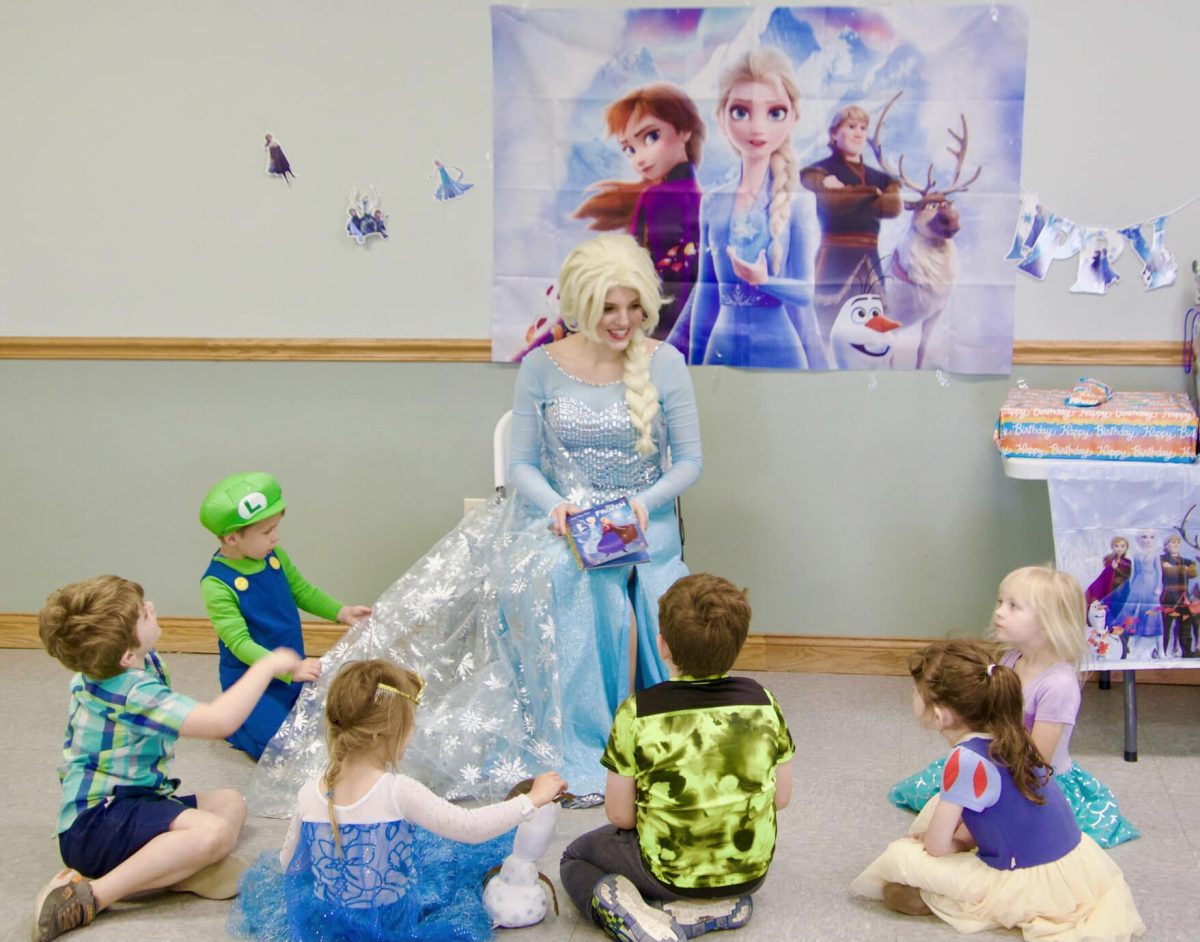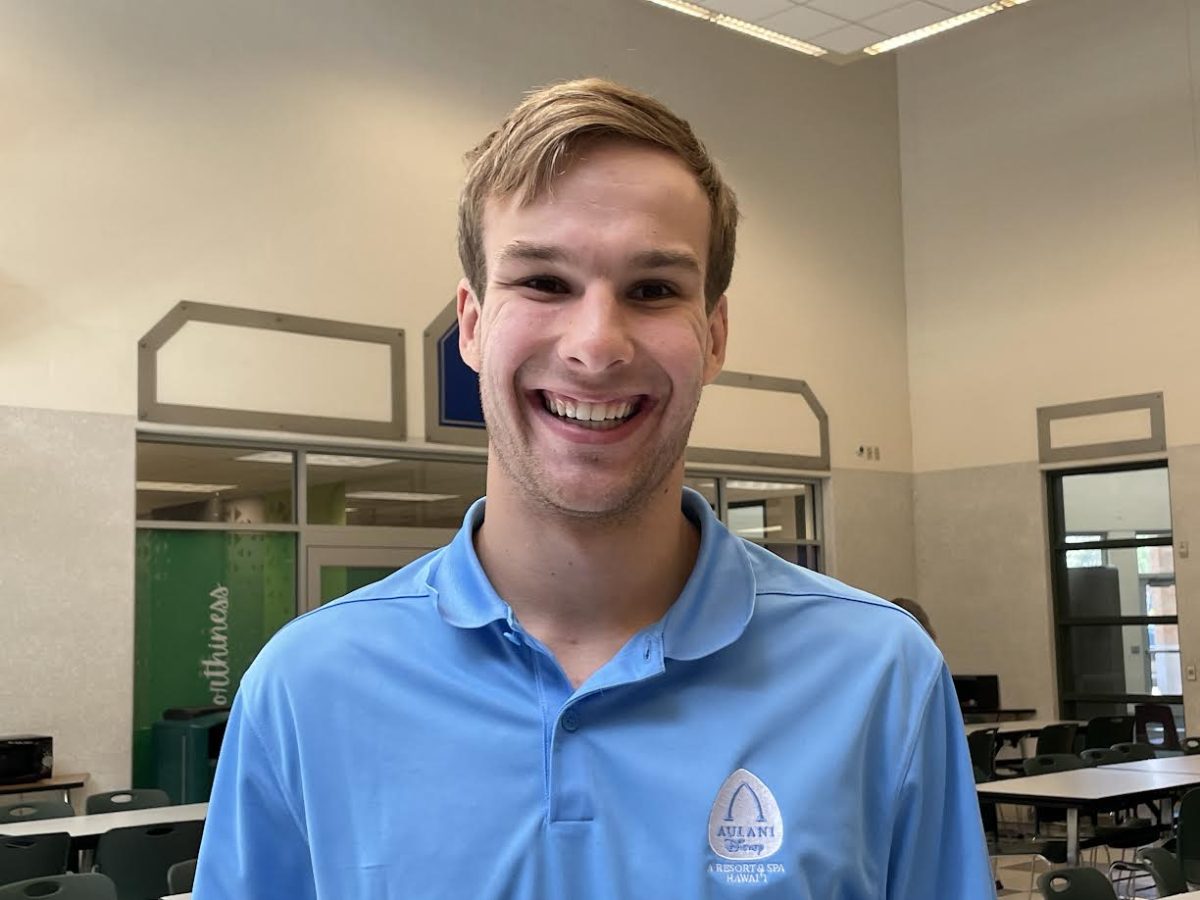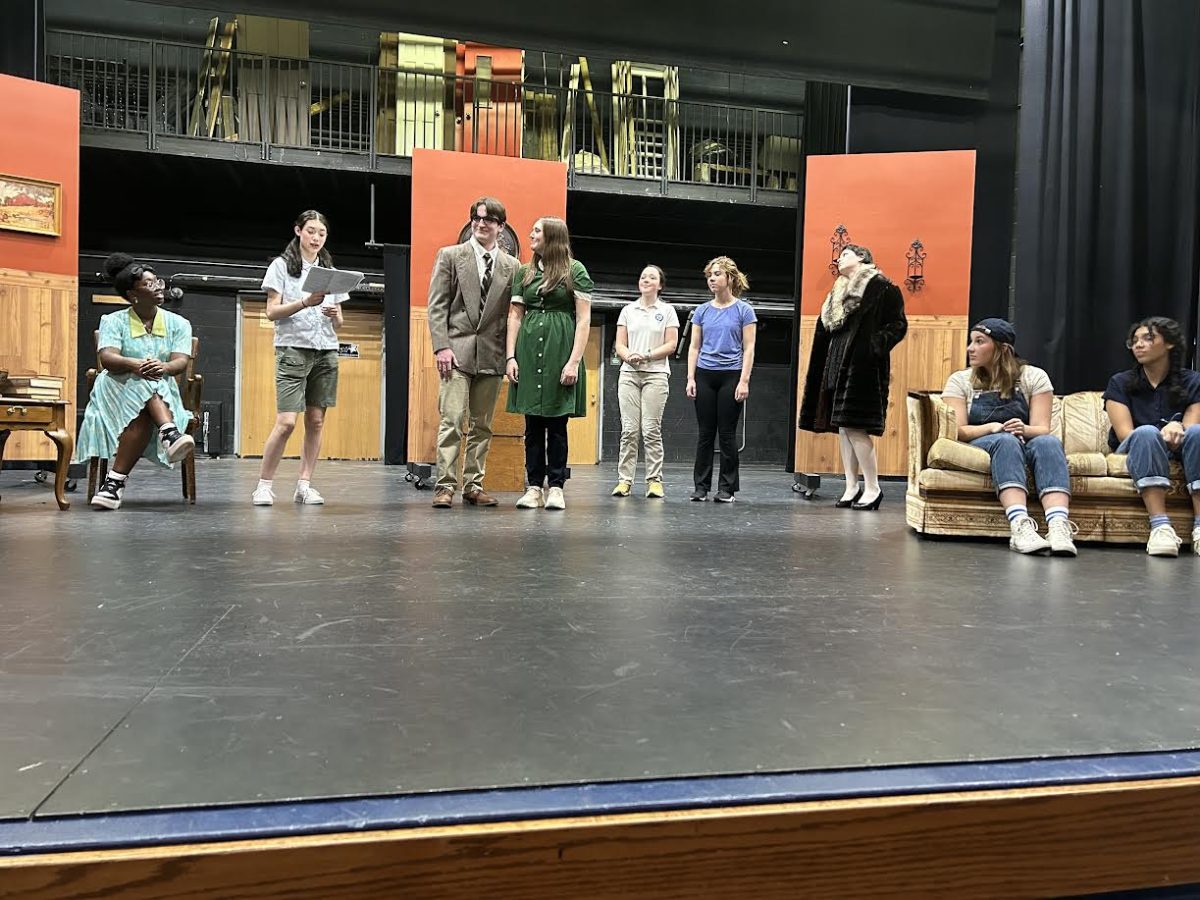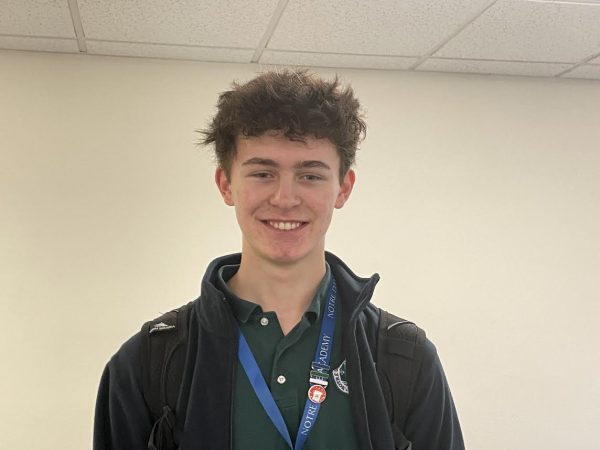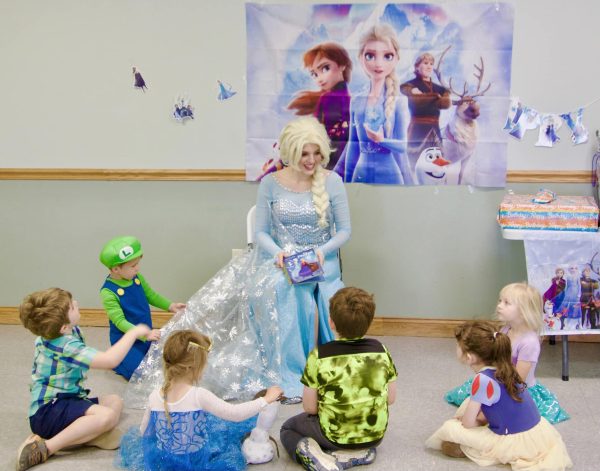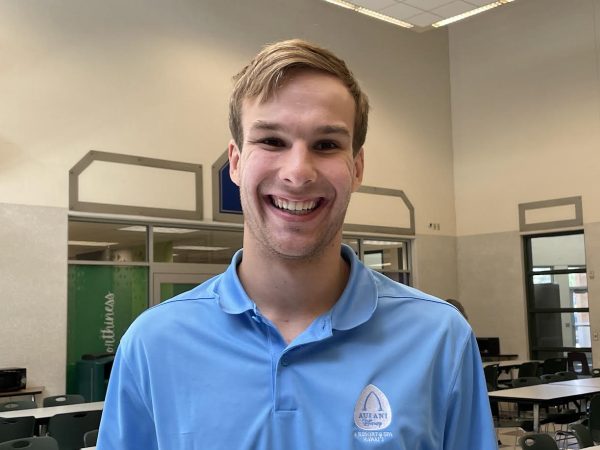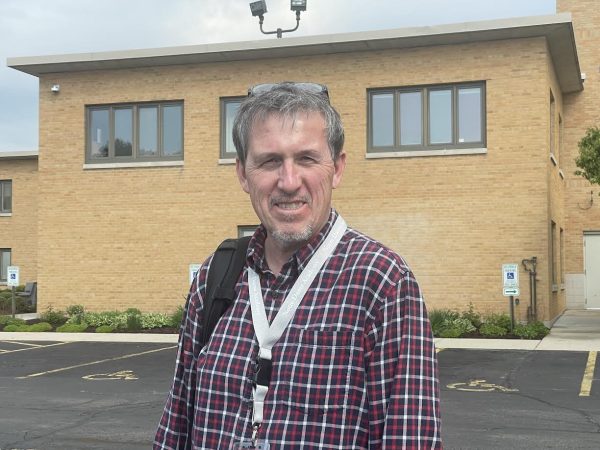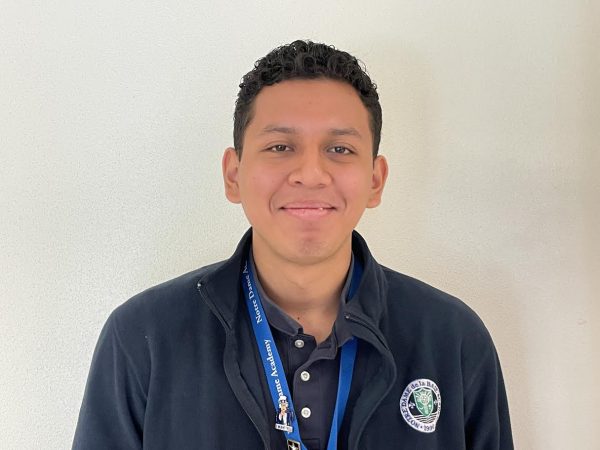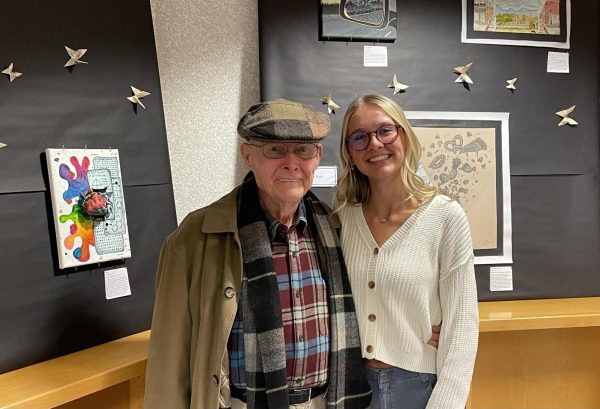New Business Teacher a Full-Time Student Himself; Morris Also an Author, World Traveler
September 22, 2019
The 2019-2020 school year has brought a plethora of new faces into our midst. One who has found his way into the academy halls is Mr. Daniel Morris.
An Allouez native, Morris attended St. Matthew’s School, which merged with Ressurrection Catholic School a few years ago to form Father Allouez Catholic School.
When the time came to choose a high school, Morris attended a public school for the first time in his life.
“All of my friends went to Pennings or Premontre or the Academy and I went off into the jungles of Edison High School,” he recalled. Morris went to Edison, then Green Bay East High School, where he was met with classmates and a culture that were very different than what he’d grown up with.
“It was a terrifying and challenging transition, but I made it through,” said the business teacher.
Morris eventually headed to the business sector, specializing in international business. Throughout his lengthy career, Morris traveled to 95 countries, which is nearly half the world.
In his 35 years of traveling, Morris was able to explore many corners of the world, but the South Pacific holds a special place in his heart.
“I love Easter Island. If I disappear and no one can find me, I’m off on Easter Island. It’s a cold and barren island with those giant carved heads all around the island,” he said. “There’s an enormous extinct volcano there, there are wild horses running on the beach, and there are almost no people”
Despite taking an apparently unrelated career path, Morris always had an interest in teaching.
“I’ve always wanted to teach,” he remembered. “I guess I was never brave enough to take the plunge.”
During his time traveling, he spent an extended period of time in Saudi Arabia, where he taught “a class or two” in an international school.
“You get a real sense of being a minority and then you’re drawn to people that are like you. In this instance, the people that spoke English were all teachers. So, I got to know them and I liked teachers and then I liked the kids.”
As the father of four kids himself, Morris said, “I think there is a great optimism to teenagers. You have the world in front of you. When you get older, you sort of get beaten down by the world. You don’t change your mind; you’re sort of stuck in your way. I like the fact that young people are visionary and optimistic and look forward to the world.”
Though he had the desire, Morris’s opportunity to teach was one of pure coincidence, a “confluence of events.”
A position had just opened up teaching business, a field in which Morris was very well versed. He also was acquainted with other faculty members, which helped him to get in communication with the administration and their hiring team.
“In life there are opportunities,” he considered. “A window of opportunity opened and I looked at it and jumped.”
“Education is a very difficult profession to get into,” Morris conceded.“Even though I have a master’s degree and can teach college students, I can’t teach high school students without a teaching certificate.”
However, thanks to a new program in Oshkosh, Morris is able to teach here at NDA while obtaining his teaching license. In other words, he is going to school full time, in the truest sense of the phrase, as both a teacher and a student.
The workload has not been lost on him.
“I’ve barely left my room,” he commented. “There’s so much to do! I’ve got to write 1000 lesson plans between August 15 and December 1, and I’m going to school full time.”
Morris is a man of many careers. Not only is he a business expert, student, and teacher, but a published author as well. He published his book, Dead Butterflies, in June of 2005.
“It just sort of flowed out of me,” he recalled. “I was at a time and place where there were many things going on in the world technologically and things going on in my life.”
Morris wrote the 120,000-word book in approximately three weeks. “It’s a time of great wonder and great turbulence,” he said.
However, getting the novel published was not quite as natural.
“It’s a great challenge to get it published. The reality is, nobody reads anymore. The people that read are reading romance novels and books about Kim Kardashian’s dog,” he explained. “You go to a publisher and they don’t care that it’s brilliant. Their only question is ‘Who’s gonna buy this book and why are they going to buy this book?’”
“It’s that harsh reality that you face, and it was the reality that I faced after it was published. It gets onto the bookshelves and people say, ‘Who’s Dan Morris and why am I going to pick this book out of 10,000 other books?’”
Still, those who read Morris’s novel were taken aback by its quality and content. It was called “brilliant” by two English professors and garnered Morris a superfan, to put it politely.
“I had a woman that bought my book and then started writing me creepy emails and showing up in places,” he reminisced. While the encounters were rather strange, it is clear that Morris’s book had the power to move people. Though it was not a financial success, he considers it a personal and artistic victory.
“I didn’t write it because I wanted to make a lot of money. I wrote it because it had to come out of me and it did.”
To the aspiring young authors of Notre Dame Academy, Morris has simple advice: “Write and write and write, and read and read and read. Go read the great authors. Go read Tolstoy. Go read Voltaire. Go read Dickens and Mark Twain.”
“There’s a difference between storytelling and writing. Writing is the crafting of the language,” he advised. “If your aspiration is to be a writer, learn the art of the language. If you want to be a storyteller, you can go make movies, or you can make TV shows. You can be gifted in those sort of things, but they are less important for the weaving of the language”
Morris’s most valuable advice was this: “Practice.”
“It’s like being an artist of any kind. You can have all these ideas in your head, but learning to put them down in a creative way on paper requires lots and lots of writing paragraphs and writing sentences and writing words.”








